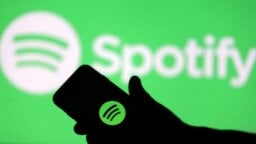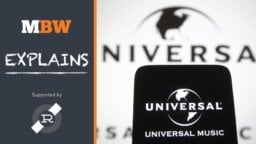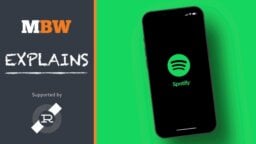WHAT’S HAPPENED?
Elon Musk’s Twitter will have an uphill battle if the social media site chooses to fight the USD $250-million copyright lawsuit that music industry heavyweights have launched against it.
Seventeen music publishing companies – including Sony Music Publishing, Universal Music Publishing Group and Warner Chappell Music – filed a lawsuit earlier this month (June 14) against X Corp. – the Twitter parent company set up by Musk – in a federal court in Tennessee, alleging “rampant infringement of copyright” on the platform.
“Twitter fuels its business with countless infringing copies of musical compositions, violating publishers’ and others’ exclusive rights under copyright law,” the music publishers’ complaint states.
“While numerous Twitter competitors respect the need for proper licenses and agreements for the use of musical compositions on their platforms, Twitter does not, and instead breeds massive copyright infringement that harms music creators,” the complaint goes on to say.
Both before and after it was sold to Elon Musk, Twitter “engaged in, knowingly facilitated, and profited from copyright infringement, at the expense of music creators, to whom Twitter pays nothing,” the suit states.
According to the complaint, the National Music Publishers Association (NMPA) began sending infringement notices to Twitter on a weekly basis beginning in December 2021, and since that time, the NMPA has notified Twitter of more than 300,000 infringing tweets.
The complaint lists around 1,700 infringed works of music that have appeared in tweets, but says that is not an exhaustive list, and more could be added to it as the case evolves.
WHAT’S THE CONTEXT?
The lawsuit comes at a time when Twitter is struggling to turn a profit, having been purchased by Musk for $44 billion last year.
Since then, it has lost a number of advertisers over concerns that Musk’s aggressive job cuts at Twitter may have made the platform a more welcoming place for hateful conduct, and therefore a less desirable place to advertise.
(Fast Company, having studied the public financials of Twitter investor Fidelity, claims that Twitter – a private company under Musk – is now posting heavy losses.)
Musk and his leadership team are busily working on new ways to better monetize the platform. Among those efforts is the recent requirement that Twitter users pay a monthly fee for the blue check that – at least theoretically – confirms their identity has been verified.
Also among those efforts is an expansion into new kinds of content that is moving the platform steadily away from being a medium exclusively for short-form texts. Twitter now allows paying users to send tweets of up to 10,000 characters (compared to the 138 characters free users have to work with).
And perhaps most notably, Twitter is turning to video to attract new users and new sources of revenue. As of last month, Twitter Blue subscribers can upload videos up to two hours in length and 8GB in size, double the previous length and quadruple the previous maximum file size.
News host Tucker Carlson, who recently parted ways with Fox News in what may or may not have been a firing, has started posting video segments to Twitter that are garnering tens of millions of views each. This has led some to speculate that Musk is making a play for a chunk of the TV entertainment and news markets.
As if to erase all doubt about that, Musk announced last week that Twitter is working on a video app for smart TVs.
When Twitter was a place to send short text messages, music copyright infringement seemed a marginal issue. But as the platform has moved increasingly towards audio and video – both before and after Musk’s takeover – the issue has become more pressing.
That hasn’t been lost on the music publishers suing Twitter, who noted in their complaint that “[w]hile the Twitter platform began as a destination for short text-based messages, Twitter widened its business model to compete more aggressively with other social media sites for users, advertisers, and subscribers. By design, the Twitter platform became a hot destination for multimedia content, with music-infused videos being of particular and paramount importance.”
However, unlike in earlier times – when the music industry was uncertain of how to address infringement in a new medium – today’s music business has several decades of experience taking digital media to task over violations. And in these conflicts, one way or another, the music business has generally come out on top.
In fact, today, the music industry’s legal challenges to social media have become almost formulaic, with a lawsuit leading to some sort of settlement that includes a licensing agreement between the music industry and the new media site being sued.
One of the most significant lawsuits was filed by NMPA and a group of music rights holders against YouTube in 2007. At that time – just a year or so after YouTube was purchased by Google – the video platform was a wild west of content, including copyrighted music for which royalties weren’t being paid.
At first, things didn’t look very good for the publishers. The US District Court for the Southern District of New York ruled in favor of YouTube, arguing that the “safe harbor” clause in the US’s Digital Millennium Copyright Act (DMCA) protected YouTube and parent company Google from liability.
However, part of that ruling was overturned on appeal, and while the case made its way through the appeals court, YouTube came to an agreement with the publishers, under which the lawsuit was withdrawn in exchange for which YouTube entered into an agreement in which it would pay music royalties through the Harry Fox Agency (HFA).
“While numerous Twitter competitors respect the need for proper licenses and agreements for the use of musical compositions on their platforms, Twitter does not, and instead breeds massive copyright infringement that harms music creators.”
Legal Complaint Against Twitter
Another YouTube-related case emerged in 2013, when the NMPA sued Fullscreen, a multi-channel network operating on YouTube, for copyright infringement in cover songs uploaded by Fullscreen’s users. That case ended with an agreement between Fullscreen and music publishers that saw Fullscreen remove some videos, pay back royalties for others, and sign a licensing deal going forward.
Another landmark case involved XM Satellite Radio, the service that’s now part of Sirius XM. In that 2007 case, the NMPA alleged that XM was selling a radio device, the Pioneer Inno, that allowed users to store songs they heard on XM Radio as MP3 files.
In that instance, XM Radio came to individual agreements with different music publishers, including EMI, at the time the world’s fourth largest music publishing company. It had reached individual agreements with Universal Music Group and Warner Music Group even prior to the litigation.
More recently, the music industry has targeted emerging brands and technologies that employ music in some way, but haven’t inked agreements with music rights holders.
In one such case, the NMPA led a group of music publishers in suing video gaming platform Roblox, saying that the platform charged users to upload music, but didn’t itself pay royalties to rights holders.
The lawsuit, which asked for at least $200 million, alleged that songs by artists like Ariana Grande, Imagine Dragons, deadmau5, Ed Sheeran, and the Rolling Stones were being used in Roblox without due compensation for their writers and copyright holders.
Just a few months after the lawsuit was filed, Roblox struck a deal with the NMPA that settled prior instances of copyright infringement, and set up a framework for music publishers to negotiate a deal for music use on Roblox going forward.
A similar pattern emerged with a $150-million, NMPA-led lawsuit in 2019 against exercise brand Peloton, which had produced thousands of workout videos that used music by artists such as Rihanna, Bruno Mars, Lady Gaga, Katy Perry, Justin Timberlake, Shawn Mendes, Ed Sheeran, Drake, Ariana Grande and many others, without a licensing agreement.
Peloton initially came out fighting and counter-sued the NMPA, essentially arguing that the trade body had violated antitrust laws by “coordinat[ing] to collectively negotiate licenses.”
But when the countersuit was dismissed by a New York judge, Peloton changed tack. Within a month, it had reached a settlement with the NMPA that included a “joint collaboration agreement” between the exercise brand and the trade body to ensure proper compensation of rights holders going forward.
Peloton’s Head of Music, Paul DeGooyer, even said that the company was “very proud to have pioneered a new revenue stream for recording artists and songwriters.”
In certain instances, just the threat of a lawsuit was enough to bring the alleged infringer to the bargaining table. That was the case with Twitch, which in 2021 received some 1,000 individual takedown notices from music publishers.
The Amazon-owned video streaming platform struck a deal with the NMPA within several months of the takedown notices. Very much like the deal with Roblox, the arrangement with the NMPA involved an “opt-in” mechanism that allowed any music publisher to sign up to a general licensing agreement with Twitch.
The pattern here is clear: Takedown notices, followed by a formal lawsuit, followed by an out-of-court settlement that involves a licensing mechanism. But there is one scenario in which this might not work: One in which the party being sued doesn’t have the money for a settlement, or to pay licensing fees.
This was the case with Napster, the original file-sharing network that popped up in the late 90s specifically for users to share their musical MP3 files. Napster’s clear violations of copyright law got the attention of the music business quickly. A&M Records led a group of recording companies in suing Napster in 2000, and that was followed by another lawsuit, this one launched by metal band Metallica.
Napster lost both cases, with judges in both cases ordering the service to stop providing access to infringing songs. The appeals court adjudicating the A&M case gave Napster a chance to prove that it could keep track of infringing users and disable access to infringing material. When Napster was unable to do so, the court ordered the service to shut down. The service declared bankruptcy in 2002.
As a source of pirated music, Napster came to an end with those lawsuits. It was an early and important victory for the music industry – even if it did cause some unhappiness among Metallica fans.
WHAT HAPPENS NOW?
The pattern that has played out with copyright lawsuits against media sites over the past few decades is both good news and bad for Twitter.
Bad, because the odds of Musk’s social media site winning the case against the music industry are low. Barring an unorthodox ruling by a judge, or some major error on the part of the music industry plaintiffs in their complaint, the music publishers will likely see victory if the case comes to trial.
Good, because Twitter will likely have an opt-out; like all its predecessors who went up against music publishers, the option to sign a licensing agreement will likely be available.
The big question will be: how much will it cost? With Twitter experiencing a massive revenue drop – ad sales have fallen 59% YoY, according to a recent New York Times report – there’s some question as to how much cash the company has on hand for a settlement.
Although the Napster scenario is unlikely in Twitter’s case, the company’s financial difficulties may be enough to prompt it to fight in court, if only to delay the inevitable payout until such time the company is better able to afford it.
The ball is now officially in Elon Musk’s court.
A FINAL THOUGHT…
The basic business model of any social media site revolves around user-generated content. The site provides the infrastructure, but users provide the content. And more than anything else, content drives engagement and brings in new users.
So social media sites have an incentive to allow the widest variety of content possible to flourish on their networks, and they will be naturally averse to any kind of obstacle that stands in the way of that content — including the need to pay royalties for music uploaded by users.
The reality of music royalties does grind against many social media companies’ ethos — after all, it’s not the social media site uploading the music; it’s the users themselves. So why should the company be responsible for paying?
Yet sooner or later, the practical issues surrounding copyright force the social media companies to the bargaining table. After all, your social media site’s reputation can take a hit if it’s reported in the news that you’ve been found guilty of copyright infringement, or if users start reporting that they’re being sued by music companies. At the end of the day, it’s simpler and better for business to simply accept licensing fees as part of the cost of doing business.
Over the years, most social media companies have learned that lesson. Twitter may be the last of the “internet outlaws” who still flout conventional copyright rules.
It may simply be Twitter’s turn to learn the lesson that so many others — from YouTube to Roblox to Twitch — have learned over the past few decades.Music Business Worldwide





